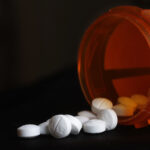The good news is, you can make some adjustments to help quell a flare.
If inflammation is causing your symptoms, your doctor might need to adjust the dosage of your medications. A short-term adjustment, or dose tailoring, may be enough to get symptoms back under control, according to a study published in February 2015 in the Internal Medicine Journal. However, Tamboli says your doctor might also order tests to find out whether you’re experiencing complications that would benefit from other treatment. You may need to switch medications if you stop responding to the one you’re on. Steroids can be used in the short-term to get a flare into remission, and while medication is the first treatment option, many people with Crohn’s need surgery at some point, according to the CCF. Surgery may help reduce the number of flares a person has and reduce complications.
Crohn’s Disease Symptoms You Can Manage
While you’re waiting for treatment to kick in, there are things you can do to get relief from symptoms.
Stacking research has shown that complementary, nonpharmacological therapies including yoga, mindfulness, biofeedback, and diet changes can be used in tandem with medication to help reduce stress and calm Crohn’s symptoms.
You can also try these tips to help manage the most common Crohn’s disease symptoms, including:
Dehydration Start by making sure you’re getting enough fluids. “The best thing people with Crohn’s disease can do is to be able to make lots of clear urine by drinking plenty of fluids,” says Peter Higgins, MD, PhD, director of the inflammatory bowel disease research program at the University of Michigan Medical School in Ann Arbor.
The CCF suggests drinking at least 64 ounces (oz) of water a day, which is eight 8-oz glasses of water, or enough so that your urine is clear. You should also avoid caffeine and don’t drink alcohol. Ask your doctor if you can stay hydrated well enough on your own or if you need to be rehydrated with intravenous fluids at your local clinic.
Discomfort From Diarrhea Frequent bowel movements can create irritation. For relief, the organization Crohn’s and Colitis Canada recommends:
Abdominal Pain Cramping, bloating, and gas can be painful. As much as 70 percent of people with an IBD flare experience abdominal pain during a flare, and that pain can persist in as much as half of those people even when the flare has subsided, according to a study published in 2021 in the journal Crohn’s & Colitis 360. Try these steps to reduce discomfort:
Nausea Talk with your doctor if nausea is keeping you from eating, drinking, or taking medications. Dr. Higgins says that some people might need anti-nausea medications that either dissolve slowly in the mouth or are available as suppositories. You can also try to relieve nausea naturally with options such as ginger or aromatherapy using peppermint oil.
Weight Loss A Crohn’s disease flare can keep you from eating and drinking enough, and even if you do, your gut may not be absorbing enough nutrients, so weight loss can be a serious concern. The CCF recommends these steps to maintain a healthy weight:
Fever Inflammation can cause a fever but this symptom will likely decrease as your treatment starts to work. Again, avoid taking nonsteroidal anti-inflammatory drugs (NSAIDs) without your doctor’s approval because they can aggravate the digestive system, Tamboli says. Acetaminophen is usually safe as long as you don’t exceed the recommended dosage.
Fatigue Higgins says fatigue should improve if you stay hydrated, manage your diet, and stick to your treatment plan, which includes maintaining adequate iron and B12 levels.
Mouth Sores If mouth sores are part of a Crohn’s disease flare, ask your doctor about using lidocaine jelly to manage discomfort, Higgins says. The CCF recommends using medicinal mouthwashes as an option for some mouth sores.
Eye Complications About 10 percent of people with Crohn’s disease experience symptoms such as blurred vision, eye pain, dry eye, and sensitivity to light, according to the CCF. Make sure your eye doctor knows you have Crohn’s, and ask if eye drops may help you manage your symptoms and protect your eyes from inflammation.
Skin Problems As many as 20 percent of people with IBD experience skin symptoms, according to the CCF. Symptoms of a Crohn’s disease flare can include tender red bumps, skin tags, blisters on the shins or ankles, a flakey rash, and mouth sores, as well as damage to the sensitive skin around the anus. If you develop skin conditions, it is best to speak with your doctor before trying any over-the-counter medications, in case it is something severe.
Taking these self-care steps should help you to feel more comfortable during a flare of Crohn’s disease symptoms.
Additional reporting by Kaitlin Sullivan.
This content was originally published here.



















